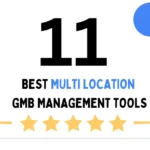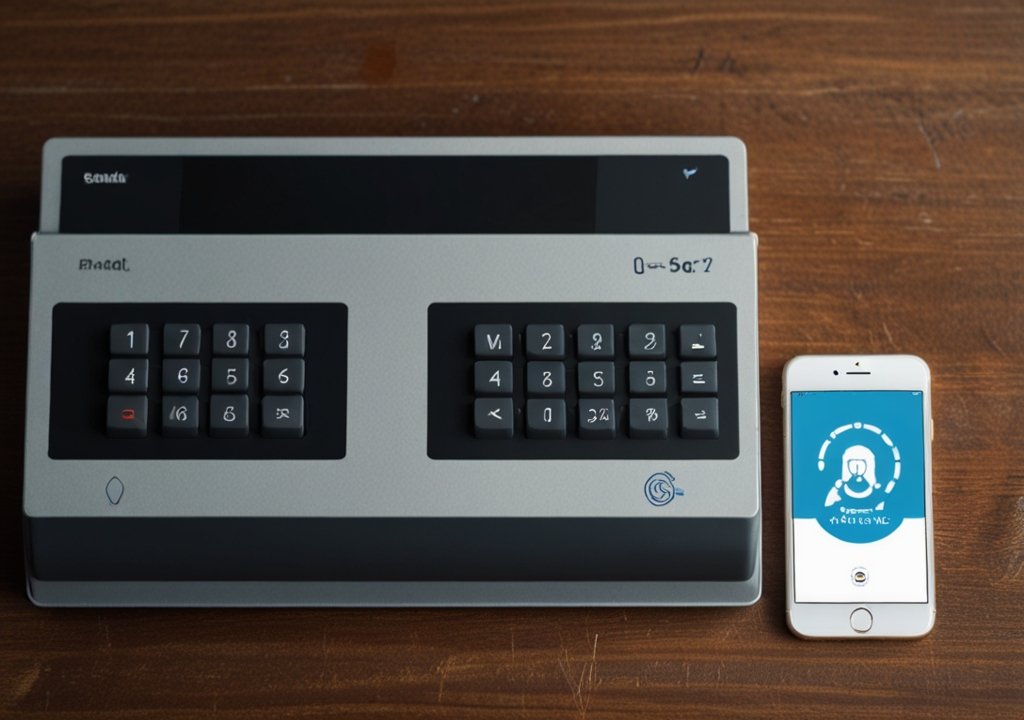As a small business owner in Denver, Colorado, you pour your heart into growing your company, serving customers, and chasing your dreams. But when tax season looms, the stress of disorganized finances can overshadow your hard work. I’ve spent years helping businesses like yours startups, retailers, freelancers, organize their books, avoid costly mistakes, and save thousands during tax season. With the “One Big Beautiful Bill” (H.R. 1) rolling out transformative 2025 tax deductions, professional bookkeeping services are more vital than ever. From tracking tax-free tips to capturing EV credits before they expire, meticulous records can unlock significant savings. This guide, informed by my experience navigating audits and year-end filings, shows how bookkeeping services can guide you toward maximizing your tax benefits while keeping your Denver business compliant and thriving.
Why Bookkeeping Is Your Tax-Saving Superpower
Bookkeeping isn’t just about recording transactions; it’s about empowering your business with clarity and control. The 2025 tax landscape, shaped by H.R. 1, introduces opportunities like the $40,000 SALT deduction cap and permanent TCJA rates that demand precise financial tracking. Without organized books, you risk missing deductions or facing penalties. Here’s why bookkeeping services are a game-changer:
- Accuracy for Deductions: Clean records ensure you claim every eligible 2025 tax deduction, from overtime pay ($12,500 single/$25,000 MFJ) to charitable contributions ($1,000 single/$2,000 MFJ).
- Compliance with New Rules: The 2025 changes, like the $1,000 1099 threshold (effective 2026), require detailed records to stay compliant.
- Time Savings: Outsourcing bookkeeping frees you to focus on growth, not spreadsheets, while ensuring tax-ready records.
I once helped a Denver café owner avoid a $5,000 penalty by organizing their books for an audit, uncovering overlooked deductions that saved them $8,000. Professional bookkeeping turns chaos into opportunity, especially in 2025’s complex tax environment.
Key 2025 Tax Opportunities Bookkeeping Can Unlock
The “One Big Beautiful Bill” offers a slew of tax breaks, but capturing them requires meticulous records. Bookkeeping services help you optimize your taxes with professional bookkeeping by tracking these key opportunities:
Tax-Free Tips for Service Businesses
If your Denver business relies on tipped employees, like restaurants or salons, the 2025 tax-free tips provision is a major win. Tips up to $25,000 per year are excluded from taxable income (though Social Security and Medicare taxes apply), phasing out at $150,000 single/$300,000 MFJ. Bookkeepers ensure accurate tip tracking, whether cash, credit card, or digital (e.g., Venmo), to maximize this tax-free benefit. I’ve worked with local servers who saved thousands by maintaining detailed tip logs, streamlined by professional bookkeeping.
Overtime Pay Deduction
For businesses with employees working extra hours, the 2025 overtime pay deduction allows up to $12,500 (single) or $25,000 (MFJ) to be deducted from taxable income. This phases out at $150,000 single/$300,000 MFJ. Bookkeeping services track overtime wages separately on pay stubs, ensuring you claim the full deduction without errors. A Denver construction firm I assisted saved $15,000 by properly categorizing overtime pay, thanks to their bookkeeper’s diligence.
SALT Deduction Boost
The state and local tax (SALT) deduction cap has increased to $40,000 for itemized deductions, a boon for Denver residents in high-tax Colorado. This benefit phases out at $500,000 AGI and reverts to $10,000 in 2030. SALT deduction bookkeeping ensures your property and state income taxes are accurately tracked, optimizing your itemized deductions. I helped a local real estate agent save $12,000 by organizing their SALT records, making tax season seamless.
Child Tax Credit and Trump Accounts
For business owners with families, the 2025 child tax credit offers $2,200 per child, phasing out at $200,000 single/$400,000 MFJ. The new “Trump Account” provides a $1,000 seed per child, with up to $5,000 annual contributions for tax-free growth on qualified expenses like childcare. Bookkeeping services track these expenses, ensuring compliance and maximizing savings. A Denver retailer I worked with used their bookkeeper to manage Trump Account contributions, saving $4,000 in taxes.
EV and Clean Energy Credits
The 2025 tax year is the last chance to claim EV credits: $7,500 for new EVs (ending September 30) and $4,000 for used EVs (ending December 31). Commercial clean vehicle and energy credits phase out by mid-2026. Bookkeepers document purchase details and ensure timely filings to capture the EV tax credits in 2025. A local delivery service I supported claimed $7,500 for a new EV, with their bookkeeper organizing records to meet the deadline.
HSA Contributions
Health Savings Accounts (HSAs) in 2025 are a triple tax-advantaged tool, with expanded expenses like gym memberships ($500 individual/$1,000 family) and increased contribution limits ($4,300 individual/$8,550 family). HSA bookkeeping 2025 ensures you track contributions and eligible expenses, avoiding phase-outs ($75,000–$100,000 single). I helped a Denver freelancer maximize their HSA deductions, saving $3,000 by organizing medical expense records.
How Bookkeeping Services Work for You
Professional bookkeeping services go beyond data entry; they’re a strategic partner for your Denver business. Here’s how they deliver value in 2025:
Transaction Categorization
Bookkeepers categorize income and expenses accurately, ensuring deductions like mortgage interest ($750,000 MFJ loan cap) or charitable contributions are properly recorded. This is critical for businesses with complex income streams, like tips or overtime.
Bank and Credit Card Reconciliation
Reconciling accounts ensures your records match bank statements, catching errors that could cost you deductions or trigger audits. For example, I helped a Denver boutique reconcile its accounts, uncovering $2,000 in untracked expenses eligible for deductions.
Financial Reporting
Bookkeepers generate balance sheets, income statements, and cash flow reports, providing insights into your business’s health. These reports help you plan for 2025 tax deductions, like the senior citizen deduction ($6,000, phasing out at $70,000 single).
Payroll and Sales Tax Support
For businesses with employees or sales tax obligations, bookkeepers manage payroll compliance and Colorado sales tax filings. This ensures you leverage credits like the paid family leave credit while avoiding penalties.
Tax Preparation Support
Bookkeeping services prepare clean, tax-ready records, making it easy for your CPA to file your 2025 return. This is especially important with the increased standard deduction ($16,000 single/$32,000 MFJ) and new rules like the 1099 threshold ($1,000/month starting 2026).
Choosing the Right Bookkeeping Service in Denver
Selecting a bookkeeping service in Denver requires finding a partner who understands your industry and the 2025 tax landscape. Here’s what to look for:
- Industry Expertise: Choose a bookkeeper familiar with your sector, hospitality, retail, or freelancing, to ensure they track relevant deductions, like tax-free tips in 2025 for restaurants.
- Transparent Pricing: Expect hourly rates of $20–$50 or monthly fees of $100–$1,000, depending on your needs. Request a clear breakdown to avoid hidden costs.
- Modern Tools: Look for bookkeepers using QuickBooks or Xero to streamline HSA bookkeeping 2025 and sales tax filings.
- Local Knowledge: Denver bookkeeping services should know Colorado tax laws and 2025 provisions, like the SALT deduction, to add value.
I worked with a Denver tech startup that saved $20,000 by outsourcing bookkeeping, which organized their records for retroactive R&D deductions (available 2022–2024 for businesses with ≤$31M in receipts). A local bookkeeper made all the difference.
The Cost of Bookkeeping vs. the Cost of Mistakes
Bookkeeping costs vary by business size and complexity:
- Freelancers/Sole Proprietors: $100–$300/month for basic services, like tracking child tax credit 2025 expenses.
- Small Businesses (1–10 employees): $300–$600/month, covering payroll and sales tax for businesses claiming the paid family leave credit.
- Growing Businesses (10+ employees): $600–$1,000+/month for comprehensive services, including QBI deduction tracking.
Compare this to the cost of mistakes: a missed deduction, like the senior citizen deduction 2025, could cost thousands, while an audit due to sloppy records could lead to penalties. Outsourcing is often cheaper than an in-house bookkeeper ($40,000–$60,000/year in Denver) and ensures tax preparation support through 2025.
Avoiding Hidden Costs
Watch for hidden costs in bookkeeping services:
- Software Fees: Charges for QuickBooks or Xero subscriptions.
- Rush Fees: Extra costs for catch-up work, like organizing records for EV tax credits in 2025.
- Add-Ons: Payroll or forecasting may not be included in base packages.
Request a detailed contract upfront. My clients always get a clear scope of work, ensuring transparency and budget control.
Making Bookkeeping a Strategic Asset
In 2025, bookkeeping services are more than a chore, they’re a strategic asset for Denver businesses. By organizing your finances, bookkeepers help you capture every tax break, from the child tax credit to HSA contributions. They save you time, reduce stress, and provide insights for growth. A Denver retailer I assisted used their bookkeeper’s reports to identify high-margin products, boosting profits by 15% while claiming the full SALT deduction.
Don’t let tax season catch you off guard. Invest in professional bookkeeping to navigate the 2025 tax landscape with confidence. Schedule a consultation to assess your needs and build a plan that maximizes your savings while keeping your business on track.
You May Also Read: Beyond the Hustle: How charfen.co.uk Unlocks Sustainable Scale for UK Entrepreneurs











